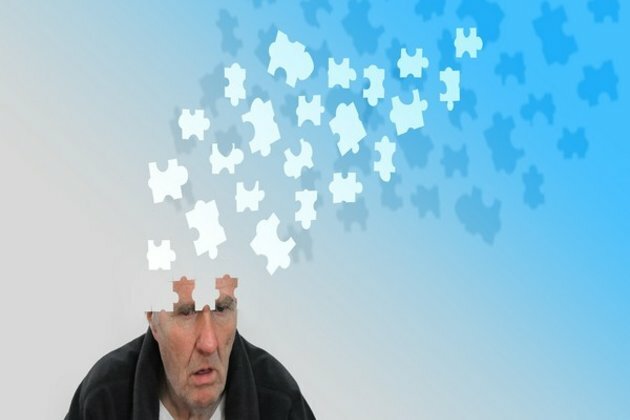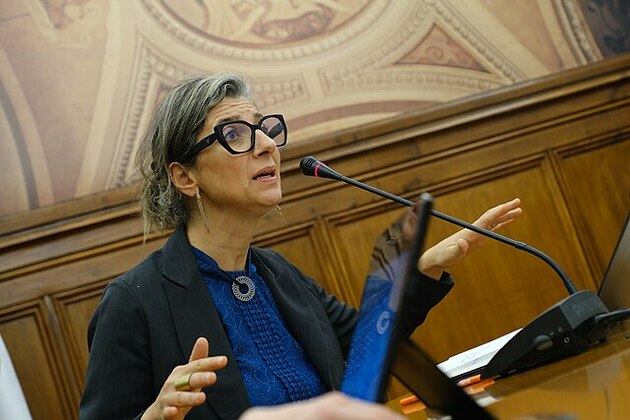Researchers' new drug screening method explains why Alzheimer's drugs fail
ANI
28 Jan 2022, 15:07 GMT+10

California [US], January 28 (ANI): A team of researchers has developed a new method to screen drugs for treating Alzheimer's disease and answer why Alzheimer's drugs so far have been ineffective at curing or reversing the disease.
The study has been published in the 'Alzheimer'sDementia: The Journal of the Alzheimer's Association'.
The findings could help pave the way for radically new therapeutic approaches to treating Alzheimer's.
Drug development for Alzheimer's has long been driven by the hypothesis that amyloid plaques--formed by the buildup of amyloid-beta proteins in the brain--are what kill neurons and cause Alzheimer's. As a result, many research efforts have focused on designing drugs that clear out these plaques.
"But this approach has not led to a cure or improved dementia in patients. Sometimes it has made the disease worse," said senior author Shankar Subramaniam, a professor of bioengineering at the UC San Diego Jacobs School of Engineering.
To understand why, Subramaniam and his collaborators developed a drug screening method that looks at what disease mechanisms, or endotypes, change in patients' neurons as a result of treatment. The most widely studied Alzheimer's endotype is amyloid plaque formation.
But there are other endotypes--reported for the first time by Subramaniam and colleagues in a previous study--that also warrant attention. These included de-differentiation of neurons to an earlier "non-neuron" cell state; suppression of neuronal genes; and loss of synaptic connections.
"This is a new test for measuring whether an Alzheimer's drug works," said Subramaniam.
"The key here is that we are using the endotypes that we discovered to see how current drugs fail. When drugs interact with human neurons, what endotypes do the drugs fix, and what endotypes do they not fix in the process?" he added.
What's also special about this method is that it screens drugs on actual patient cells.
"The power of this is that you can do precision medicine and have a good model system to study Alzheimer's," said Subramaniam.
The method involved taking human induced pluripotent stem cells derived from patients with familial Alzheimer's disease, which is a hereditary form of Alzheimer's, and transforming them into neurons. The researchers treated these neurons with drugs and used next-generation sequencing techniques to evaluate what endotypes changed before and after treatment. The researchers also performed this drug screen on neurons derived from healthy individuals as a control experiment.
In this study, the researchers screened two experimental Alzheimer's drugs that were designed to reduce or prevent the growth of amyloid plaques. One was a drug candidate developed by Eli Lilly, called semagacestat, which had failed late-stage clinical trials. The other was a drug candidate developed by Subramaniam's collaborator and co-author on the study, Steven Wagner, who is a professor of neurosciences at UC San Diego School of Medicine.
The researchers found that the drugs only fix some endotypes, such as the formation of amyloid plaques. The drugs also partly fix the de-differentiation endotype, by triggering "non-neuron" cells to transform back into neurons.
However, this transformation is not complete, noted Subramaniam, because the neurons still lack synaptic connections and therefore cannot communicate with each other.
"Now we have a prescription for what endotypes to target during drug screening," said Subramaniam.
"What we are seeing is that fixing amyloid plaque formation does not reverse the disease in any way. It turns out that this endotype is way downstream, so it's too late. Once neurons de-differentiate into non-neurons, they lose their synaptic connections, which leads to loss of memory and cognition and as a consequence, dementia," he added.
"I am very excited to use these novel screening strategies for the Alzheimer's drugs that are being developed in my laboratory," said Wagner.
"In my experience in the industry and now academia, this is the first effort to use multiple endotypes for overcoming the failures of drugs targeted only at amyloid plaques," he added.
Next, the researchers will evaluate their drug screening method on brain organoids.
"We want to take this a step further to screen drugs on more realistic tissues, not just neurons in a dish," said Subramaniam.
The team will also work on developing new Alzheimer's drug candidates and screening them with their method. (ANI) Share
Share
 Tweet
Tweet
 Share
Share
 Flip
Flip
 Email
Email
Watch latest videos
Subscribe and Follow
Get a daily dose of Los Angeles Herald news through our daily email, its complimentary and keeps you fully up to date with world and business news as well.
News RELEASES
Publish news of your business, community or sports group, personnel appointments, major event and more by submitting a news release to Los Angeles Herald.
More InformationInternational
SectionOver 60 companies named in UN report on Israel-Gaza conflict
GENEVA, Switzerland: A new United Nations report alleges that dozens of global corporations are profiting from and helping sustain...
UK lawmakers desigate protest group as terrorist organization
LONDON, UK - Lawmakers in the United Kingdom have voted overwhelmingly to proscribe the direct-action group Palestine Action as a terrorist...
Dalai Lama to address Buddhist conference, reveal succession plan
DHARAMSHALA, India: The Dalai Lama is set to address a significant three-day conference of Buddhist leaders this week, coinciding with...
US Supreme Court backs Texas efforts to shield minors online
WASHINGTON, D.C.: In a significant ruling last week, the U.S. Supreme Court upheld a Texas law requiring age verification for users...
Turkey, France battle wildfires amid early Europe heatwave
ISTANBUL/PARIS/BRUSSELS: As searing temperatures blanket much of Europe, wildfires are erupting and evacuation orders are being issued...
Venetians protest Bezos wedding with march through the town
VENICE, Italy: Over the weekend, hundreds of protesters marched through the narrow streets of Venice to voice their opposition to billionaire...
California
SectionRobinhood launches stock tokens for EU investors, adds OpenAI
MENLO PARK, California: Robinhood is giving European investors a new way to tap into America's most prominent tech names — without...
Trump hints at DOGE investigation of Musk subsidies
WASHINGTON, DC - U.S. President Donald Trump on Tuesday claimed Elon Musk's success has been built on government subsidies. Without...
Nvidia execs sell $1 billion in stock as AI boom drives record prices
SANTA CLARA, California: Executives at Nvidia have quietly been cashing in on the AI frenzy. According to a report by the Financial...
Lululemon accuses Costco of selling knockoff apparel
Vancouver, Canada: A high-stakes legal showdown is brewing in the world of athleisure. Lululemon, the Canadian brand known for its...
Fox faces $787 million lawsuit from Newsom over Trump phone call
DOVER, Delaware: California Governor Gavin Newsom has taken legal aim at Fox News, accusing the network of deliberately distorting...
DIY weight-loss drug trend surges amid high prices, low access
SAN FRANCISCO, California: Across the U.S., a growing number of people are taking obesity treatment into their own hands — literally....













